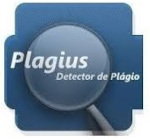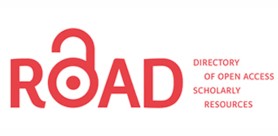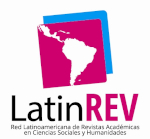BIBLIOGRAPHICAL SURVEY ABOUT HUMOR, LAUGHTER AND COMEDY FOCUSED ON LANGUAGE TEACHING
DOI:
https://doi.org/10.47180/omij.v4i2.225Keywords:
Articles & Thesis., Language teaching., Humor.Abstract
Humor, comicity and laughter are three concepts that have emerged in some research or publications focusing on general education. Although there are publications that indicate the use of humor as a positive factor in human relations and in the recovery of sick subjects, there is still resistance in teaching practices or activities that contemplate the humor or the comic or even those that provoke laughter in the classroom. In text books the presence of such activities is rare. Based on this finding, a survey was conducted in publications related to language teaching between 2010 and 2021 in databases such as Google Scholar, Directory of Open Access Journals (DOAJ) and the Scientific Electronic Library Online (SciELO). The most evident results point to the following numbers: Portuguese foreign language (3 documents); English foreign language (4 documents); Portuguese mother tongue (8 documents), published in theses, articles and book chapters. These data show, in view of the volume of publications related to the teaching of languages present in the bases listed above, the low frequency of research related to the central theme of the research. Humor, comicity and laughter are three concepts that have emerged in some research or publications focusing on general education. Although there are publications that indicate the use of humor as a positive factor in human relations and in the recovery of sick subjects, there is still resistance in teaching practices or activities that contemplate the humor or the comic or even those that provoke laughter in the classroom. In text books the presence of such activities is rare. Based on this finding, a survey was conducted in publications related to language teaching between 2010 and 2021 in databases such as Google Scholar, Directory of Open Access Journals (DOAJ) and the Scientific Electronic Library Online (SciELO). The most evident results point to the following numbers: Portuguese foreign language (3 documents); English foreign language (4 documents); Portuguese mother tongue (8 documents), published in theses, articles and book chapters. These data show, in view of the volume of publications related to the teaching of languages present in the bases listed above, the low frequency of research related to the central theme of the research.
Downloads
References
BAKHTIN, M. Marxismo e filosofia da linguagem. São Paulo: Hucitec, 2006.
______. Discurso na vida e discurso na arte. (trad. Carlos Alberto Faraco), 1926.
______. Estética da Criação Verbal. São Paulo: Martins Fontes, 1992.
______. Problemas da poética de Dostoiévski. Rio de Janeiro: Forense-Universitária, 1981.
______. A cultura popular na Idade Média e no Renascimento: o contexto de François Rabelais. São Paulo: Hucitec, 1987.
______. Questões de literatura e estética: a teoria do romance. São Paulo: Hucitec/ USP, 1988.
______. O Freudismo. São Paulo: Perspectiva, 2004.
BEZERRA, P. Prefácio à segunda edição brasileira. In BAKHTIN, M. Problemas da poética de Dostoievski. Rio de Janeiro: Forense Universitária, 1981.
BRAIT, B. (org.). Bakhtin – conceitos-chave. São Paulo: Contexto, 2005.
______. Bakhtin – outros conceitos-chave. São Paulo: Contexto, 2006.
______. “Análise e teoria do discurso”. In BRAIT, B. (org.). Bakhtin – outros conceitos-chave. São Paulo: Contexto, 2006.
CLARK, K.; HOLQUIST, M. Mikhail Bakhtin. São Paulo: Perspectiva, 1998.
CORREA, G. T. A potência crítico-criativado humor e do riso na educação Germinal: Marxismo e Educação em Debate, Salvador, v. 11, n. 2, p91-106, abr. 2019. Acesso em: 22 ago, 2022. DOI: https://doi.org/10.9771/gmed.v11i2.26601
DI CAMARGO, I. Jr. Mikhail Bakhtin na linguagem cinematográfica. São Paulo: Mentes Abertas, 2020 [no prelo].
______. A Memória de Futuro em tela: diálogos entre o Cinema e Mikhail Bakhtin. São Paulo: Mentes Abertas, 2020.
ENGRACIO, H. A. O humor na educação: Em linha. Lisboa: [s.n.], 2008. 129 p. Acesso em: 22 ago, 2022.
LAMÓGLIA, F. B.; BONETI, L. W. Humor na escola. Psicologia Argumento, [S.l.], v. 37, n. 97, p. 367-386. 2019. Acesso em: 22 ago, 2022. DOI: https://doi.org/10.7213/psicolargum.37.97.AO05
LIRA, B. C. O passo a passo do trabalho científico. 2 ed. Petrópolis: Vozes, 2014.
MIOTELLO, V. Bakhtin em trabalhos de estudo da língua: levantando o problema do pertencimento. Estudos Linguísticos, Campinas, v. XXXV, p. 176-180, 2006.
______. Discutindo a questão do dialogismo com Bakhtin. Versão Beta, São Carlos, n. 25, p. 31-50, 2003.
______. Compreendendo alguns conceitos bakhtinianos. Versão Beta, São Carlos/SP, n. 10, 2002, p. 02-10.
______. Estudo da língua em Bakhtin - objeto e metodologia. In: GATTOLIN, S. R. B.; SIGNORI, M. B. D.; MIOTELLO, V. (Org.). Década - Dez anos entre o aprender e o ensinar linguagens. São Carlos/SP: Pedro & João Editores, 2007, p. 275-286.
______. As palavras engravidam e grávidas dão à luz um mundo novo. In: Grupo de Estudos dos Gêneros do Discurso - GEGE. (Org.). O Espelho de Bakhtin. 1ª ed. São Carlos/SP: Pedro & João Editores, 2007, p. 185-206.
______. A Memória do Passado em jogo com a Memória do Futuro constitui sentidos agora. Daí que os Projetos de Dizer dos sujeitos têm importância. In: COVRE, A. L.; OLIVEIRA, F.; MIOTELLO, V. (Org.). Veredas Bakhtinianas - de objetos a sujeitos. São Carlos: Pedro & João Editores, 2006, p. 277-286.
______. Ideologia. In: Beth Brait. (Org.). Bakhtin - Conceitos-chave. São Paulo: Editora Contexto, 2005, p. 167-177.
PONZIO, A. La revolución bajtiniana. Madri: Catedra, 1999.
______. A Revolução Bakhtiniana. São Paulo; Editora Contexto, 2008.
RUTHERFORD, J. Introdução. In: CERVANTES, M. Dom Quixote. v. 1. São Paulo: Companhia das letras, 2020.
SOUSA, L. M. M. Benefícios do humor na saúde: revisão sistemática de literatura. Enformação, Portugal, p. 22-32, jan./jun., 2016. Disponível em: http://repositorio.chlc.min-saude.pt/bitstream/10400.17/2584/1/enformacao_07_2016%2022%2032.pdf. Acesso em: 24 jun. 2019.
Downloads
Published
How to Cite
Issue
Section
License
Copyright (c) 2023 Open Minds International Journal

This work is licensed under a Creative Commons Attribution-NonCommercial-NoDerivatives 4.0 International License.
The authors declare that any work submitted, if accepted, will not be published elsewhere, in English or in any other language, and even electronically, unless it expressly mentions that the work was originally published in the Journal.













